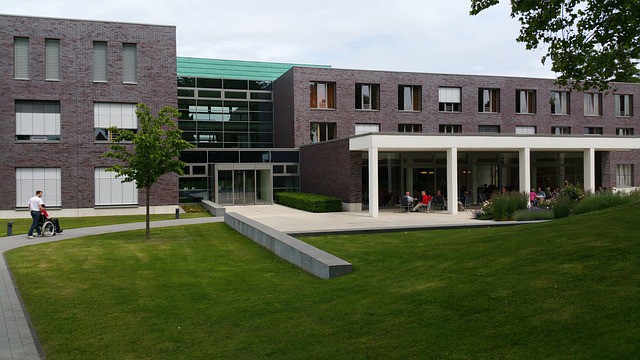While reaching the sober status is a positive milestone, it is, however, important to remember that drug rehab is the initial steppingstone, towards long-term recovery. With that being said, your sobriety and the efforts it requires must continue, must be prioritised, must be normalised for your future.
At Nova Recovery, we ensure that sober living can be sustainable after a comprehensive drug rehab programme. Yet, there are still some risks of relapse which cannot be controlled by our team, post-rehab.
Down to this, it is important that our clients are equipped with expectations, with proactive steps and with a relapse prevention plan to aid long-term recovery. Here’s a guide to keeping up recovery after drug rehab here at Nova Recovery. For support with your initial drug rehab programme, reach out today. Embrace your drug rehab journey to recovery through our guidance.
Post-Rehab Expectations
It is very important that clients understand what to expect after rehab before they begin their initial rehabilitation journey. Unfortunately, some will believe that a standalone drug rehab programme will be enough. That a cure from addiction is available, that sober living can be sustained by detoxing from drugs.
Unfortunately, this isn’t the case. Drug rehab can stand as the first step within the addiction recovery process. It helps to promote physical and psychological withdrawal, it helps to adopt coping strategies, it helps make sober living a strong possibility. By combining these factors, drug rehab can motivate initial signs of recovery. Yet, to keep your recovery status going, efforts must continue, aftercare must be embraced, relapse prevention plans must be relied upon.
If you are a recovering addict, or soon to be at this milestone, you must understand post-rehab expectations. Post-rehab experiences will differ for all clients, as will long-term recovery journeys. Some will experience drug relapse, requiring greater intervention. Others will thrive by following professional advice, highlighted in our below guide.
Down to the unknown, you will control your experience post-rehab. Yet, by increasing your awareness of long-term recovery efforts, you’ll likely accept the impending steps greater.
Long-term addiction recovery is tough. It’s very likely that you will experience some bumps in the road, especially on your initial return home. It may take a while for your new lifestyle choices to embed themselves. You may face up to drug exposure or risks. Yet, by pressing ahead, by committing to a life without drugs, you can preserve your recovery probabilities.
A Guide To Keeping Up Recovery After Drug Rehab And Beyond
At Nova Recovery, we work to ensure that long-term recovery can be sustainable. This means that sober living can become a strong part of your life, that avoiding drug exposure is a priority. Unfortunately for some individuals, this can be impossible down to the choices they make post-rehab.
However, if you are passionate about keeping on track, we have a useful guide full of tips to help you continue your addiction recovery journey, after drug rehab and beyond.
- – Embracing aftercare services
Drug rehab aftercare services are there for a reason. They are in place to support your transition between your rehab stay and your return home. This can be a vulnerable time, where the true test begins. This test will define the success of your drug rehab programme, and how sustainable your current recovery plan is.
Aftercare services will usually stand as support groups and AA meetings. They can be invaluable while you find your feet as a recovering addict.
- – Adjusting reality
Post-rehab, you must adjust your reality. Whether that’s your chosen relationships, the hobbies that you entertain, the environments that you find yourself within, all must prioritise minimal drug exposure.
Start by following a healthy and positive routine, aim to boost your nutrition, maintain physical activity, ensure that you get enough rest, and also make changes to your schedule, your coping strategies and your connections.
- – Rebuilding positive connections
Unfortunately, living with an addiction can cause family members or friends to drift away. This is now the ideal time to invest your energy into rebuilding positive connections.
Support is very important through the drug rehab recovery process. By securing a strong support system, you’ll likely have people you trust and can confide in if you do experience a drug relapse.
- – Focusing on the positives
Through new changes, it can be easy to focus on the negatives, on uncontrollable factors. However, this can send you a few steps back in your recovery journey. Aiming to focus on the positives will help you set small milestones, helping to ease your overarching recovery journey.
- – Activating your relapse prevention plan
Through our rehab hospital, you will be advised to form a personal relapse prevention plan. This plan will include helplines, it will include next steps if you do experience cravings, and it will also have prevention steps to minimise relapse risks.
Activating your relapse prevention plan will be wise after drug rehab, helping you feel reassured and confident that support is available if necessary.
- – Remaining honest with yourself and those around you
Living with an addiction can commonly influence denial. Post-drug rehab, it can be easy to revert back to this mindset. You must however avoid it at all costs by remaining honest with yourself and those around you. By doing so, early signs of relapse can be spotted, helping to secure your position through drug recovery processes.
Viewing post-rehab life as a new beginning is recommended. Yet, you must also remember that effort must be present to keep up your recovery goals post-rehab. A single slip can send you a few steps back. Although resolutions are in place, the aim is to prolong recovery for as long as possible. Achieve this by following our guide to keeping up recovery after drug rehab.
For support with your initial drug rehab programme, or for guidance around relapse prevention, reach out today.
Back to all posts
John Gillen
- Author
- Last updated: September 8, 2023
John has travelled extensively around the world, culminating in 19 years’ experience looking at different models. He is the European pioneer of NAD+ (Nicotinamide Adenine Dinucleotide) treatment to Europe in 2010; and recently back from the USA bringing state of the art Virtual Reality Relapse Prevention and stress reduction therapy. His passion extends to other metabolic disturbances and neurodegenerative diseases. The journey continues. In recent times, John has travelled to Russia to study and research into a new therapy photobiomudulation or systemic laser therapy working with NAD+ scientists and the very best of the medical professionals in the UK and the USA, together with Nadcell, Bionad Hospitals own select Doctors, nurses, dieticians and therapists. Johns’ passion continues to endeavour to bring to the UK and Europe new developments with NAD+ Therapy in preventive and restorative medicine and Wellness. In 2017 John Gillen was made a visiting Professor at the John Naisbitt university in Belgrade Serbia.



